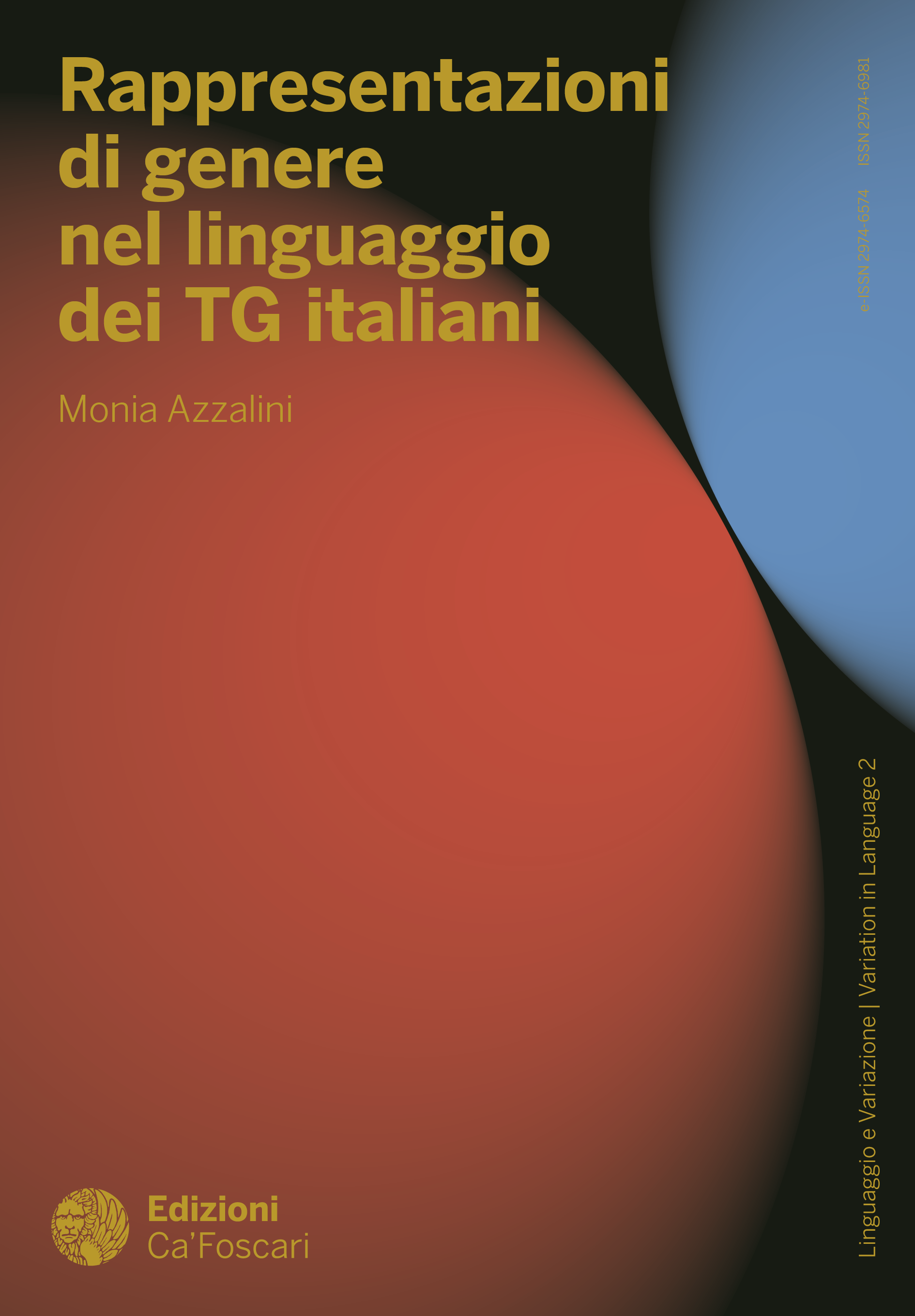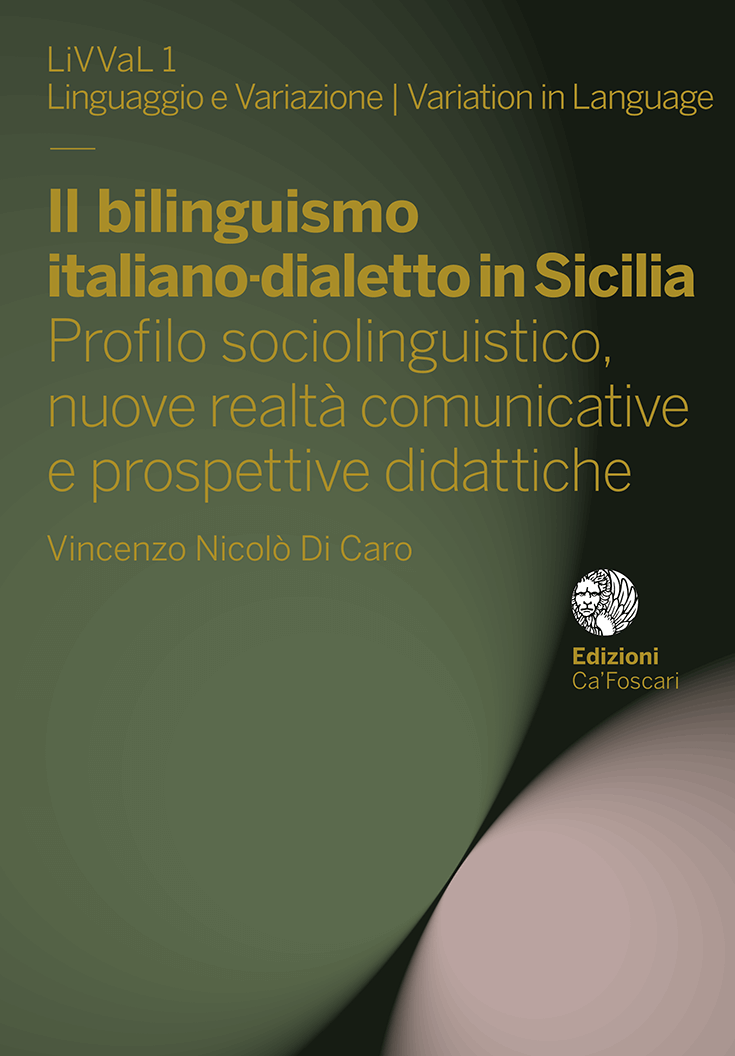LiVVaL Linguaggio e Variazione | Variation in Language
open access | peer reviewed
Presentazione
La collana si propone di presentare studi sulla variazione linguistica in senso esteso, dalla micro-variazione che si riscontra tra varietà e dialetti affini alla macro-variazione che è alla base dello studio degli universali linguistici. Si propone di accogliere contributi fondati su ogni approccio, teorico o applicato, adeguato a definire domande di ricerca e dare risposte qualitative o quantitative sull’interazione tra i moduli del linguaggio (lessico, sintassi, semantica, pragmatica, fonologia e morfologia) e sulla complessa relazione tra questi e gli atteggiamenti linguistici di parlanti e comunità linguistiche utilizzando l’approccio sociolinguistico e psicolinguistico.
I contributi potranno trattare aspetti tipici delle situazioni di multilinguismo (lingue di immigrazione e di eredità) o dilalia (bilinguismo tra lingua locale, regionale, nazionale), analisi di singoli fenomeni in prospettiva micro- e macro-comparativa, studi su percezione e atteggiamenti linguistici rispetto a lingue di minoranza, contatto linguistico e fenomeni normativi e identitari, variazione diatopica e diacronica all’interno delle lingue europee. L’intento della collana è quello di creare una finestra aperta alla scena internazionale per la diffusione degli studi sulla variazione linguistica e di essere un punto di riferimento degli studi sull’italiano e le varietà italoromanze in chiave comparativa con particolare riguardo alla dimensione pan-romanza e pan-europea.
Le proposte di pubblicazione di monografie e volumi collettanei saranno accettate in italiano e inglese, e in altre lingue europee strettamente rilevanti al tema della pubblicazione.
e-ISSN 2974-6574 | ISSN 2974-6981 | Lingua en, it |
Copyright This is an open-access work distributed under the terms of the Creative Commons Attribution License (CC BY). The use, distribution or reproduction is permitted, provided that the original author(s) and the copyright owner(s) are credited and that the original publication is cited, in accordance with accepted academic practice. The license allows for commercial use. No use, distribution or reproduction is permitted which does not comply with these terms.
Ultimo volume pubblicato

- Lingua inclusiva: forme, funzioni, atteggiamenti e percezioni
- 13 Dicembre 2024
Questo volume propone sette contributi dedicati alla lingua inclusiva, intesa in due accezioni interrelate: l’inclusione delle donne in discorsi declinati al maschile e l’inclusione di persone che non si riconoscono nel binarismo di genere. L’obiettivo è stimolare una discussione rispettosa e informata sulle strutture linguistiche, con particolare attenzione all’italiano. Le ricerche, basate su analisi qualitative e quantitative di corpora, indagini psicolinguistiche e sociolinguistiche condotte su questionari, descrivono specifiche varietà di lingua o tipologie testuali, mettono in luce le principali differenze strutturali tra italiano e tedesco, indagano la presunta neutralità del maschile detto ‘non marcato’ (o addirittura ‘inclusivo’) o la percezione pubblica del linguaggio inclusivo e riflettono sull’uso delle desinenze grammaticali nella costruzione dell’identità di genere nei chatbot. Da tutti i contributi emerge uno scenario preoccupante in particolare per il grado di visibilità delle donne nel discorso culturale italiano e per la mancanza di denotazione di prestigio del genere femminile.
- 95 download 706 search
- Heritage Languages and Variation
- 18 Luglio 2024
- 57 download 568 search
- Language Attitudes and Bi(dia)lectal Competence
- 30 Giugno 2024
- 57 download 615 search
- Partitive Constructions and Partitive Elements Within and Across Language Borders in Europe
- 16 Maggio 2024
- 400 download 1735 search
- Rappresentazioni di genere nel linguaggio dei TG italiani
- 16 Ottobre 2023
- 1252 download 2523 search
- Il bilinguismo italiano-dialetto in Sicilia
- 16 Dicembre 2022




